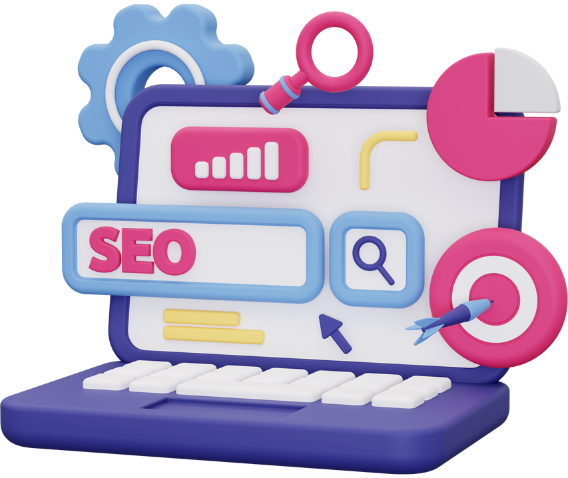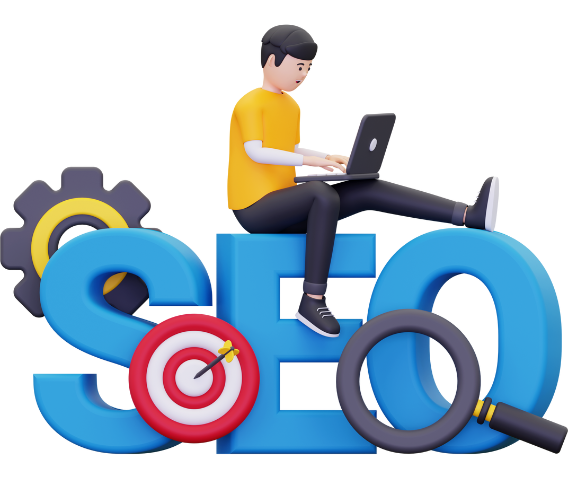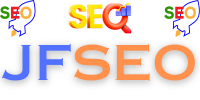The Basics of SEO for Small Business Owners
What is SEO in simple and easy-to-understand terms? SEO, which stands for Search Engine Optimization, is the practice of enhancing your website to improve its visibility when people search for products or services related to your business on search engines. In simple terms, it’s about making your website more discoverable in the online crowd.
When someone puts a query into a search engine, the engine’s algorithms sift through billions of pages to provide the most relevant results. SEO is the toolset that you use to make your web pages appealing to these algorithms, enabling your site to rank higher on Search Engine Results Pages (SERPs) by optimizing elements like content, keywords, and links.
So why does a higher ranking matter? More visibility on search engines leads to more traffic to your website. The end goal is for potential customers to find your brand, product, or service easily when they search online.
In essence, SEO is a critical tool that can help your business stand out in the vast digital marketplace and help potential customers find you more easily.

Why SEO is important for small businesses
SEO is like a virtual megaphone for your small business. It helps your website pop up higher in search results, making it easier for customers to find you among the online crowd. Think of it as having the best spot on the main street of your town — visible and accessible.
Here’s why it’s a game-changer for small businesses like yours:
- More Eyes on You: A higher spot in search results means more people can stumble upon your business.
- Trust Talks: People often trust the top results in Google. So when you’re up there, it’s like a badge of honour.
- Save Your Money: SEO is cost-effective. It targets folks already interested in what you’re offering rather than casting a wide, expensive net.
- Know Your Crowd: SEO tools tell you loads about customer preferences — like having a crystal ball for business insights.
- Play With the Big Kids: It levels the playing field. Even as a smaller business, you can compete with the big names.
So, even if all this tech talk feels like learning a new language, remember that SEO is all about helping the right people find their way to your doorstep. And that’s a journey worth taking for any growing business.
Understanding SEO for Small Businesses
Search Engine Optimization, or SEO, is a digital marketing strategy that focuses on improving a website’s visibility in organic search engine results. Now, you might ask, why does this visibility matter? It’s simple. The better your website’s ranking on search engine results pages (SERPs), the more likely you are to attract visitors to your site.
The primary goal of SEO, therefore, is to increase both the quality and quantity of website traffic, as well as enhance brand exposure, through non-paid or “organic” search results. It’s not just about satisfying the search engines but also aligning with what people are searching for, providing them with the relevancy and simplicity to address their queries.
Contrary to its technical-sounding acronym, SEO is as much about people as it is about search engines. Its ultimate purpose is to help businesses understand their audience, create user-friendly content, and build a digital reputation that search engines can recognize and trust. This understanding is the key to influencing search engines to favour your website more and, in turn, drive customers your way.
In conclusion, SEO is a powerful tool in the digital landscape that, when used effectively, can significantly boost a website’s online presence, leading to increased traffic, improved customer engagement, and potentially higher sales.

How Search Engines Work
Search engines use complex algorithms to rank websites, and it boils down to three essential steps:
- Crawling: Search engines scour the internet to find content, examining the code/content for each URL they locate.
- Indexing: After a page is discovered, it’s stored and organized by search engines. The content found during the crawling process is indexed, and once it’s in the index, it’s eligible to be displayed as a result for relevant queries.
- Ranking: When a search query is entered, search engines sort through their index to provide the most relevant results. They rank pages by various factors, including but not limited to, the site’s relevance to the search query, its quality, and its user experience.
Search engines consider numerous ranking signals when evaluating web pages. Key factors include the use of relevant keywords, the quality and freshness of content, mobile-friendliness, page speed, and the number and quality of inbound links.
For instance, Google uses these signals to determine the usefulness of a page and its relevance to users’ search inquiries, ensuring that users find what they’re looking for. Continuous testing and refinement are part of this process, which aims to optimize the search experience and deliver the most relevant search results in a fraction of a second.
Understanding and leveraging these factors can significantly influence where a website will show up in search results. Optimizing for these can lead to improved search engine rankings, which is the core objective of SEO efforts.

Key Components of SEO
1. On-page SEO: This is a vital aspect of optimizing a website to rank well in search engines and involves optimizing the content and the HTML source code of a page. Here’s a brief overview:
- Content: It’s crucial to create high-quality, comprehensive content that addresses the searchers’ intent. Your content must provide value and be unique compared to other content available on the same topic.
- Keywords: Proper keyword research is needed to determine the terms and phrases users are searching for. Once identified, these keywords should be naturally integrated into your content, including the title, headings, and body of the text.
- Headers: Logical use of headers (H1, H2, H3, etc.) helps organize content making it easier for readers to browse and for search engines to understand the structure and key sections of your page’s content.
- Meta Tags: These include the meta title and meta description tags that appear in the search results. They need to be concise, compelling, and inclusive of the main keywords for each page to improve click-through rates and inform search engine crawlers about the page’s content.
By employing these on-page SEO tactics, a website can significantly improve its visibility and ranking in search results.
2. Off-page SEO: This is about improving your website’s reputation outside of your site. Here’s a quick look:
- Backlinks: These are like online referrals. Other websites link to your site, which tells search engines that your content is valuable, much like a friend recommending a restaurant.
- Social Media: When you’re active on social media, sharing posts, and chatting with customers, it’s like spreading the word about your business at a community meet-up. This doesn’t directly change your search ranking but can lead more people to your website.
- External Factors: Anything from customer reviews to being mentioned in a local newspaper can help boost your brand’s visibility and credibility.
Just remember, off-page SEO is kind of like networking for your site. It’s about making good connections that help build up your business’s online reputation. Keep it authentic, stay engaged, and your standing on the internet will grow!
3. Technical SEO: Let’s simplify this into three main points:
- Site Speed: Imagine your website is like a speedy delivery service; the faster it can deliver information, the happier your customers are. Quick loading times make for a better browsing experience and help with your site’s ranking on search engines.
- Mobile-Friendliness: Nowadays, most people browse the web on their phones, so it’s crucial your website looks good and works well on mobile devices. It’s like ensuring your shop is easy to navigate for everyone, not just those who visit on a desktop.
- Structured Data: This is a way of organizing information on your site so search engines can better understand and display it. Imagine it as putting labels on your products, making it easier for customers (and search engines) to find exactly what they’re looking for.
By focusing on these three areas, you’re taking important steps to make your website more search-engine-friendly and user-friendly, too!

Why SEO Is Crucial for Small Businesses
The Visibility Factor
Think of search engine rankings like the leaderboard in a marathon. The higher your business ranks, the more people see you. It’s like being right at the front, where all the spectators can spot you easily.
With better rankings, when someone searches for something you offer, your website is one of the first they see. Just like in a busy market, a shop in front gets more visitors, a higher-ranked website gets more clicks. More clicks mean more people checking out what you do, and that can lead to more customers.
To put it simply, moving up in search rankings is like moving your shop to a better spot in town, the spot where everyone walks by and notices you. That’s how better rankings make your website more visible, and that’s how more people find their way to what you’re offering.
Building Credibility
Think of SEO as your online reputation builder. It’s like having great word-of-mouth for your business on the internet. When you use SEO to create a fantastic website with valuable content, search engines come to view you as a trusted expert in your field, just like shoppers trust a well-known and reliable store in the neighbourhood.
Here are the basics:
- Be Helpful: Regularly update your website with useful information.
- Be User-Friendly: Make sure your website is easy to use and loads quickly.
- Be Recognized: Aim to be mentioned by other reputable websites.
In short, SEO helps you become the go-to spot online, much like the popular corner shop in your local town. It takes a bit of time and care, but it’s all about building a trustworthy presence that customers and search engines appreciate.
Cost-Effectiveness
SEO is like planting a seed in a garden — the initial effort pays off over time, attracting customers organically and providing visibility without ongoing ad costs. It’s a long-term investment, perfect for building a robust online presence.
Traditional advertising (like billboards or TV ads), on the other hand, is like buying a bouquet: immediate and eye-catching but needs continual spending to keep it fresh. It provides quick exposure but is generally a higher ongoing investment.
Essentially, SEO offers long-term rewards, while traditional ads provide a quick visibility boost. Choose a blend or a focus depending on your business needs and budget.

Understanding the Competition
Staying on top of SEO is key for your business and can be as simple as checking in on a favourite news app. Here’s a quick take:
- Search Engine Updates: Just like your phone’s apps update regularly, so does Google’s system for ranking sites. Keep informed, and your business won’t get left behind.
- Trends Matter: Know the latest SEO insights and you’re tuning into your customer’s current wavelength.
- Happy Site, Happy Visitors: A smooth-running website charms visitors and search engines, making your business easier to find and enjoy.
- Spend Smart: With the right SEO know-how, you’ll put your effort (and cash) into what really works.
You may now be wondering… How to Keep Up? It’s about taking small steps. Follow some SEO blogs like HubSpot, join digital marketing groups online, or listen to podcasts. Just a little time each week can make a big difference.
Remember, it’s like tending a garden, it doesn’t grow overnight, but regular care will bring beautiful results.

Conclusion
Imagine SEO as your small business’s best friend, tirelessly working to make sure customers can find you easily online. It’s all about making your website the kind of place search engines love to recommend. Why does this matter?
- Visibility: It puts you out there where people are looking. Just like having a shop in a bustling market instead of a back alley.
- Trust: Climbing up the search results is like a trust badge from the internet, making customers more likely to pick you.
- Cost-Efficiency: Unlike ads that stop the moment you stop paying, SEO keeps your window display bright even when you’re not there.
- It’s Fair: In the world of SEO, it doesn’t matter how big you are; it’s about being relevant. It gives you a fair chance to stand alongside the big names.
In summary, SEO is like a friendly guide, leading your business through the bustling digital crowd straight to your future customers. With a bit of care and the right approach, it can open doors to opportunities that make a real difference.







